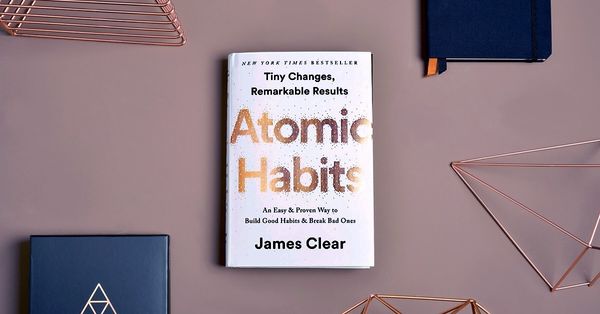Book Summary: The Ascent of Money
From shekels and cowry shells to Bitcoin, money has traversed a very long path. It has led to the creation of the world we know as ‘Planet Finance’. Buckle up, today we're diving into key takeaways from ‘The Ascent of Money’ by Niall Ferguson
Let's go!
Financial systems face a lot of bad rap; often proclaimed as the cause of all crises and the great divide between the haves and have-nots. But in another sense, they’re a big ally of progress. Just follow the journey of money through the ages and you’ll understand why.
Money is a complicated concept, we agree. But one well worth understanding better.
[Related Read: What is money?]
All over Europe, money was seen not as a concept, but as a metal that fuelled a lot of wars and trade endeavours. Metal was used because it was durable, portable, reliable and easily available.
ℹ The Romans produced currency in Gold, Silver and Bronze.
Of wars and shiny metals
As the Europeans spread out to hoard more metal, they set forth certain events that would change give birth to modern finance and change the face of the Earth forever. We start our story with a conquistador named Francisco Pizarro, who was instrumental in the fall of Cuzco, the capital of the Incas. The spoils led to a huge influx of silver in Spain.
But why invade a region for a metal? Because silver was money.
This influx was tremendous and drove massive growth through the continent. The Spanish ‘piece of 8’ coin based on the German thaler (ancestor of the dollar) became a universal currency. But even all that silver couldn’t save them from an imperial and economic decline.
What they overlooked was that over-distribution of silver would reduce the value of the metal itself — thus reducing its purchasing power and bringing an empire’s greatest enemy to its doors. Inflation, and the accompanying rise in the cost of living. What the conquistadors failed to realise is that money’s value isn’t just stored in objects. It’s stored in something fundamentally human: Trust.
It is only worth what someone else is willing to give you for it. With trust comes a promise. When you hand a person 10 bucks, you don’t give them paper. Rather you ‘promise to pay the bearer the sum of 10 bucks’. Upon this promise emerged a vital component of the modern financial system.
Credit.
The English word ‘credit’ has its root in the Latin ‘credo’ which means ‘I believe’. Borrowing and lending systems drive financial institutions because they help in the creation of money and more importantly — wealth.
Here’s how:
Suppose you give a bank 100 dollars, it takes 90 of them and lends it to someone. The person now with 90 dollars uses it to earn and puts funds back into the bank — which takes some out of them and repeats the process.
Some of the earliest evidence of lending and borrowing were found in clay tablets from Mesopotamia, which kept a log of what was owed and what had to be collected. This interconnectedness of the early world led to the stellar progress we see today.
The people who built money
Let’s look at another man — Leanardo Bonacci — better known as Fibonacci. He incorporated the Hindu-Arabic numeral system to bring a cohesive numerical and decimal system into Europe. His compatriots would revolutionise modern banking
The Medici family of Florence were the first modern bankers. As their wealth grew, so did their power over the fabric of Italian art and culture. They can be hailed as a pioneering example of how diversifying reduces risk.
(P.S. Have you seen Medici on Netflix?)
In 1694, The Bank of England was formed to fund the war effort and endorsed by the then regents. Governance and Banks had formed an official union.
Here’s a timeline of the history of the Bank of England:
https://www.bankofengland.co.uk/about/history
Now that banks have been established, let’s take a look at another major component of the financial system — equity And they start with the bonds made during war (quite literally)
One of life’s most gruesome realities is that all wars can be boiled down into a financial endeavour. Because wars need a lot of funding, the government tends to borrow from its citizens with a promise to compensate them with interest. This is called a bond. The bond market is often a good indicator of the efficiency of the government. One must remember that markets are not facts of nature, but a reflection of the human state of mind. Nathan Rothschild’s efforts to profit out of the Napoleonic wars are a great example of this.
Before Wall Street came the Dutch East India Company. They collected capital from the public by issuing stocks. After it was decided that they would not liquidate; they gave their stakeholders the option of either being paid in spices or simply selling the stock.
Credit and the climb out of poverty
Access to credit has the power to reduce poverty in nations as it opens up streams of microfinancing and long term planning. This is something new, as it indicates people have begun to start thinking aggressively about our futures. The key to longevity for an empire or a nation is to keep capital flowing. As you would have guessed, a solid and stable presence of financial institutions like banks is vital for this. The ones who do this inevitably get to impose their power upon nations that have not.
A market is simply a reflection of human mood and beliefs. Beliefs and opinions which are large and last long can lead to what is known as a ‘bubble’. The thing is, we can never truly know if we’re in one... until we’re out of it.
Which brings us to another interesting money related topic — Insurance.
Private insurance appeared in Scotland as a way to collect premiums and return it to a vicar’s next of kin in emergencies or their demise. Before this, insuring the ‘hulls’ of boats was also common. What insurance brings to the game is another line of credit which — if sustained effectively and after due consideration of risk — can contribute to the good health of an economy
While it is easy to view the ascent of money as a rising linear line, it has actually been a bumpy roller coaster with many obstacles. The arrival of money as we know it took a long time, and no one knows what shape or form it will take in the future.
Yodaa is a smart money app and card for the entire family. Join the club of the smartest financially empowered teens in India and SE Asia. Get Yodaa today.



